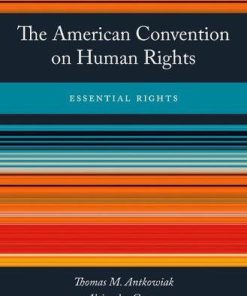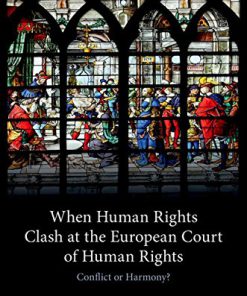Torture Psychoanalysis and Human Rights 1st Edition by Monica Luci 1317439233 9781317439233
$50.00 Original price was: $50.00.$25.00Current price is: $25.00.
Torture Psychoanalysis and Human Rights 1st Edition by Monica Luci – Ebook PDF Instant Download/DeliveryISBN: 1317439233, 9781317439233
Full download Torture Psychoanalysis and Human Rights 1st Edition after payment.

Product details:
ISBN-10 : 1317439233
ISBN-13 : 9781317439233
Author: Monica Luci
Torture, Psychoanalysis and Human Rights contributes to the development of that field of study called ‘psycho-social’ that is presently more and more committed to providing understanding of social phenomena, making use of the explicative perspective of psychoanalysis. The book seeks to develop a concise and integrated framework of understanding of torture as a socio-political phenomenon based on psychoanalytic thinking, through which different dimensions of the subject of study become more comprehensible. Monica Luci argues that torture performs a covert emotional function in society. In order to identify what this function might be, a profile of ‘torturous societies’ and the main psychological dynamics of social actors involved – torturers, victims, and bystanders – are drawn from literature. Accordingly, a wide-ranging description of the phenomenology of torture is provided, detecting an inclusive and recurring pattern of key elements. Relying on psychoanalytic concepts derived from different theoretical traditions, including British object relations theories, American relational psychoanalysis and analytical psychology, the study provides an advanced line of conceptual research, shaping a model, whose aim is tograsp the deep meaning of key intrapsychic, interpersonal and group dynamics involved in torture. Once a sufficiently coherent understanding has been reached, Luci proposes using it as a groundwork tool in the human rights field to re-think the best strategies of prevention and recovery from post-torture psychological and social suffering. The book initiates a dialogue between psychoanalysis and human rights, showing that the proposed psychoanalytic understanding is a viable conceptualisation for expanding thinking of crucial issues regarding torture, which might be relevant to human rights and legal doctrine, such as the responsibility of perpetrators, the reparation of victims and the question of ‘truth’. Torture, Psychoanalysis and Human Rights is the first book to build a psychoanalytic theory of torture from which psychological, social and legal reflections, as well as practical aspects of treatment, can be mutually derived and understood. It will appeal to psychoanalysts, psychoanalytic psychotherapists and Jungians, as well as scholars of politics, social work and justice, and human rights and postgraduate students studying across these fields.
Torture Psychoanalysis and Human Rights 1st table of contents:
PART 1 The phenomenon of torture
1 Torture: what is it? A definition of the field of inquiry
Torture in international law
Torture in literature
References
2 Torturous societies
Torture: a power relationship between two embodied social realities
The basic features of a torturous society
References
3 Social actors of torture
Perpetrators
Victims of torture
Bystanders
References
PART 2 A psychoanalytic understanding of torture
4 Paradoxical Multiple Self States and Monolithic Self States: destinies of the Reflective Triangle
A theoretical premise
The paradox of the multiple self: multiplicity as unity and dissociation as continuity
The in-between space: an investigation into the phenomenology of states of twoness and states of thirdness
Paradoxical multiple self-states and monolithic self-states: destinies of the Reflective Triangle
References
5 The emotional life of torturous societies: Monolithic Societal States
Freud: what kind of group psychology?
Application to torturous societies
The shape of a Monolithic Societal State
Torture
References
6 The Splintered Reflective Triangle in bystanders, perpetrators and victims of torture
Me–You and You–Me: bystanders and the phenomenon of the ‘missing witness’
Other–Me and Me–Other: the objectification of perpetrators
Other–You and You–Other: de-subjectification of the victims
References
PART 3 Implications for human rights
7 The permissibility of torture
Arguments for torture
Arguments against torture
Emotional undercurrents of rational arguments
References
8 Three fields of application in human rights: responsibility of perpetrators, reparation for victims and the problem of truth
Responsibility of perpetrators of torture
Reparation for survivors of torture
The question of ‘truth’
References
People also search for Torture Psychoanalysis and Human Rights 1st:
torture and human rights violations
torture human rights
torture and dehumanization
torture and inhuman treatment
human rights freedom from torture and degrading treatment
Tags: Torture Psychoanalysis, Human Rights, Monica Luci, explicative perspective
You may also like…
Relationships & Lifestyle - Psychological Self-Help
Forces of Destiny Psychoanalysis and Human Idiom Christopher Bollas
Politics & Philosophy - Government & Politics
Business & Economics - Human Resources
Strategic Human Resources Planning 7th Edition Monica Belcourt
Jurisprudence & Law - Legal Theory & Philosophy
The American Convention on Human Rights : essential rights 1st Edition Antkowiak
Jurisprudence & Law - Civil Rights Law
Education Studies & Teaching
Globalisation Human Rights Education and Reforms 1st Edition Joseph Zajda
Politics & Philosophy - Anthropology












